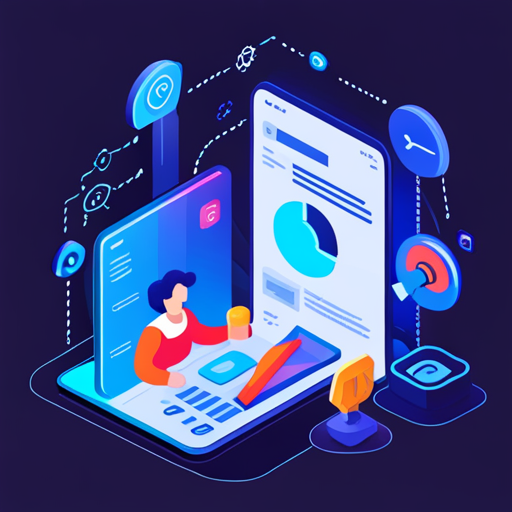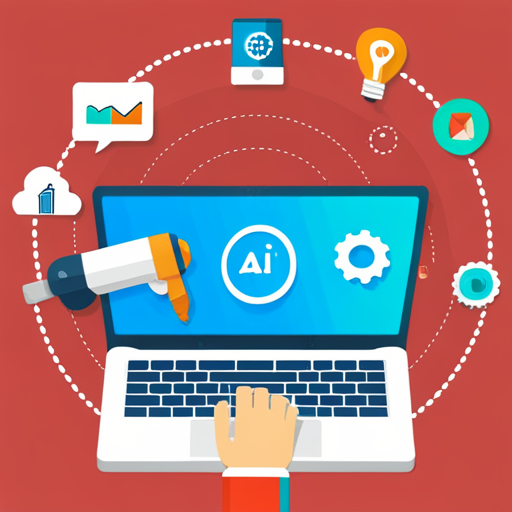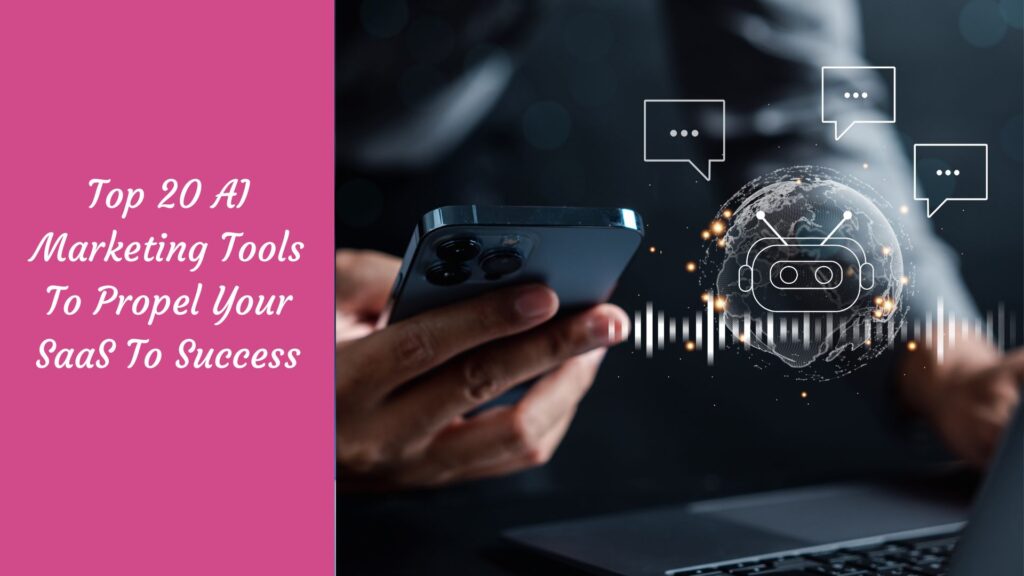In the rapidly evolving SaaS landscape, staying ahead of the competition is a game of innovation and adaptability. One major game-changer is the surge of artificial intelligence (AI) in marketing. 🚀
AI marketing tools are redefining traditional marketing strategies, providing unprecedented insights, automating tasks, and delivering personalized experiences like never before. 🔍✨
This piece delves into the top 20 AI marketing tools that can propel your SaaS business to success, helping you harness the untapped potential of AI and stay at the forefront of your industry. 📈💡
Buckle up as we journey into the future of marketing! 🚀🔮
What are SAAS AI Marketing Tools?
SaaS AI Marketing Tools refer to the application of artificial intelligence within marketing software delivered as a service, also known as Software as a Service (SaaS). These tools leverage the capabilities of AI to automate, optimize, and streamline marketing tasks in unprecedented ways. 🔧💡
Here are a few examples of SaaS AI Marketing Tools: 📈📊🎯

- Chatbots: AI-powered chatbots like Drift or Intercom can automate customer service and lead generation, making them available 24/7.
- Email Marketing Automation Platforms: Tools like Mailchimp, which uses AI to optimize email send times and subject lines, helping to increase open and click-through rates.
- Content Creation Tools: Platforms like Phrase use AI to generate high-performing ad copy or email subject lines.
- Marketing Analytics Platforms: Tools like Datorama (from Salesforce) use AI to provide advanced marketing analytics, make sense of big data, and help marketers make informed decisions.

These tools transform how businesses approach marketing, making it more efficient and effective. By leveraging AI, SaaS companies can predict customer behavior, personalize marketing efforts, and drive success.
Importance of sAAS AI Marketing Tools
The importance of SaaS AI marketing tools in today’s competitive digital landscape cannot be overstated. Here are some key reasons why they are vital:

1.Automation and Efficiency: These tools automate repetitive tasks such as email marketing, social media posting, and customer service (via chatbots). It saves time and eliminates human error, leading to greater efficiency and accuracy.
For instance, platforms like Hootsuite and Buffer use AI to schedule social media posts at optimal times when your audience is most active, freeing up your time to focus on more strategic tasks.
2.Customer Personalization: AI-enabled marketing platforms can analyze vast amounts of data to understand user behavior and preferences. It allows for delivering personalized experiences and targeted marketing messages that resonate with individual customers.
A classic example is Netflix’s recommendation system, which uses AI to suggest shows and movies based on a user’s viewing history, significantly improving user engagement.
3.Data-Driven Decisions: AI marketing tools can extract valuable insights from large volumes of data, helping businesses make informed, data-driven decisions. It leads to more effective marketing strategies and improved ROI.
Google Analytics, for instance, uses AI to track and analyze website traffic, providing insights into visitor behavior, which can then be used to optimize the website and improve conversion rates.
4.Predictive Analysis: AI can predict future trends based on historical data, allowing businesses to anticipate customer needs and market changes. It helps in proactive decision-making and staying ahead of the competition.
HubSpot’s predictive lead scoring feature uses machine learning to forecast customer conversion likelihood. 📈 In a nutshell, SaaS AI marketing tools are transforming the way businesses operate by enhancing efficiency, personalizing customer experiences, making data-driven decisions, and predicting future trends. 🚀 Leveraging these tools can give any business a competitive edge in their marketing efforts. 💪
TOP 30 SAAS AI Marketing Tools in 2024 (with five pros and cons)

1.Zoomph:
Zoomph offers AI-driven insights to shape your marketing strategy by understanding your audience better.
Pros:
- Provides real-time social media analytics.
- Offers sentiment analysis to gauge audience response.
- Allows for efficient audience segmentation.
- Generates personalized campaigns.
- Tracks ROI effectively.
Cons:
- The interface can be complex for beginners.
- Limited customization options.
- High-cost plans.
- It can be time-consuming to set up.
- Reports can lack in-depth details.
2.Optimizely:
Optimizely is a leading experimentation platform that uses AI to optimize your digital marketing strategies.
Pros:
- Supports A/B testing for marketing campaigns.
- Offers detailed analytics and insights.
- Improves ROI on marketing spend.
- Personalized customer experience based on data.
- Allows for easy integration with other tools.
Cons:
- Can be difficult to implement.
- Can be pricey for small businesses.
- The learning curve is steep.
- Customer service can be slow.
- Some issues with the mobile app functionality.
3.SEMrush:
SEMrush is an AI-powered marketing toolkit for SEO, PPC, and content marketing professionals.
Pros:
- Comprehensive keyword research tool.
- Tracks the SEO strategies of your competitors.
- Assists in optimizing web content for search engines.
- Provides backlink analysis.
- Offers detailed traffic analytics.
Cons:
- Expensive, especially for small businesses.
- Overwhelming amount of data for beginners.
- Limited results for keyword research.
- The user interface is not very intuitive.
- Data accuracy can sometimes be questionable.
4.Drift:
Drift is a conversational AI platform that helps businesses generate leads, engage customers, and provide personalized experiences via chatbots.
Pros:
- Offers real-time conversation tracking.
- Integrates with various other tools.
- Has an intuitive user interface.
- Can be used for lead qualification and nurturing.
- Provides efficient customer support.
Cons:
- The free version has limited features.
- Chatbots can sometimes provide irrelevant responses.
- Limited customization options for chatbot design.
- Can be expensive for small businesses.
- Limited availability of integrations with social media platforms.
5.Marketo Engage:
Marketo Engage is an AI-powered marketing automation platform by Adobe that helps businesses engage customers and deliver personalized experiences across channels.
Pros:
- Offers effective lead scoring and nurturing.
- Integrates with various other tools, including Salesforce.
- Provides detailed analytics and reporting.
- Streamlines marketing processes for efficiency.
- Personalized customer experiences based on data.
Cons:
- Expensive for small businesses.
- Can be complex to set up and learn.
- Some features may require coding knowledge.
- Customer support can be slow at times.
- Limited options for customizing landing pages and email templates.
6.Google Optimize:
Google Optimize is a free A/B testing and personalization tool for websites and mobile apps.
Pros:
- Easy to set up and use.
- Provides real-time analytics and reports.
- Offers seamless integration with Google Analytics.
- Allows for easy website personalization based on data.
- Supports multivariate testing for more in-depth insights.
Cons:
- Limited customization options compared to other tools.
- May not be suitable for complex testing scenarios.
- The free version has limited features.
- Overwhelming for beginners with the abundance of available data. Only supports Google Analytics integration, limiting data tracking from other sources.
7.Hootsuite:
Hootsuite is a social media management platform using AI to analyze and improve your marketing efforts.
Pros:
- Offers efficient social media scheduling and publishing.
- Provides detailed analytics and reports.
- Supports multiple social media platforms.
- Allows for team collaboration and management.
- Integrates with various other tools.
Cons:
- The free version has limited features.
- Can be overwhelming for beginners.
- Some features may require coding knowledge.
- Customer support can be slow at times.
- Limited customization options for reporting and analytics.
8.Driftrock:
Driftrock is an AI-powered marketing automation platform that helps businesses acquire and retain customers through personalized targeting and communication.
Pros:
- Offers efficient lead generation and nurturing.
- Provides personalized communication across channels.
- Integrates with Facebook, Google, and LinkedIn for targeted ads.
- Offers real-time performance tracking and analytics.
- Easy to set up and use.
Cons:
- May not be suitable for small businesses due to high costs.
- Limited customization options for ad targeting.
- Some features may require coding knowledge.
- Customer support can be slow at times.
- Limited availability of integrations with other tools.
9.HubSpot:
HubSpot is an all-in-one software that helps businesses attract, engage, and delight customers through marketing, sales, and service.
Pros:
- Offers a full stack of marketing, sales, and customer service software.
- Provides a free CRM.
- Easy to use with an intuitive interface.
- Excellent customer service.
- Integrates with other tools, including Gmail and Outlook.
Cons:
- Can be pricey for small businesses.
- Some features may require an upgrade.
- Limited customization options for certain features.
- Learning curve for certain functionalities.
- CRM lacks some advanced features.
10.Salesforce Einstein:
Salesforce Einstein is an AI-powered CRM platform that helps businesses personalize customer experiences and make data-driven decisions.
Pros:
- Offers personalized lead scoring and nurturing.
- Provides real-time performance tracking and analytics.
- Integrates with various other tools, including Salesforce products.
- Easy to use with an intuitive interface.
- Offers predictive insights for better decision-making.
Cons:
- Can be expensive for small businesses.
- May require coding knowledge to fully utilize certain features.
- Limited customization options for reporting and analytics.
- Some users may find the interface overwhelming at first.
- Customer support can be slow at times.
11.Mailchimp:
Mailchimp is an all-in-one marketing platform that assists businesses in managing and talking to their clients, customers, and other interested parties.
Pros:
- Provides email marketing services and templates.
- Offers detailed reports and analytics.
- Integrates with various other tools.
- User-friendly interface.
- Provides a free tier for small businesses.
Cons:
- Advanced features require paid plans.
- Limited customization options for email templates in the free version.
- Learning curve for advanced features.
- Customer service can lack responsiveness.
- Some integrations can be difficult to set up.
12.Zoho CRM:
Zoho CRM is an online customer relationship management software for managing your sales, marketing, and support in a single system.
Pros:
- Offers a comprehensive suite of tools for sales and marketing.
- Provides detailed analytics and reports.
- Integrates with other Zoho products and third-party apps.
- Affordable pricing for small businesses.
- Easy to use with an intuitive interface.
Cons:
- Customer support can be slow at times.
- Some features may require coding knowledge.
- Limited customization options for certain features.
- The mobile app can have functionality issues.
- Some integrations can be difficult to set up.
13.Buffer:
Buffer is a software application designed to manage accounts on social networks by providing the means for scheduling posts to Twitter, Facebook, Instagram, and Linkedin.
Pros:
- Easy to use with an intuitive interface.
- Provides detailed analytics and reports.
- Supports multiple social media platforms.
- Allows for team collaboration and management.
- Offers efficient social media scheduling and publishing.
Cons:
- Limited features in the free version.
- No option for direct Instagram posting.
- Limited customer support.
- Analytics could be more in-depth.
- Can be overwhelming for beginners.
14.Omnisend:
Omnisend is an omnichannel marketing automation platform that helps businesses communicate with their customers through various channels, including email and SMS campaigns.
Pros:
- Offers a variety of channels for customer communication.
- Provides personalized marketing automation workflows.
- Easy to use with an intuitive interface.
- Offers detailed reports and analytics.
- Integrates with various ecommerce platforms.
Cons:
- Limited customization options for certain features.
- Can be pricey for businesses with a large email list.
- Some users may find the interface overwhelming at first.
- Customer service can be slow at times.
- Advanced features may require coding knowledge to utilize fully.
15.SharpSpring:
SharpSpring is a comprehensive marketing automation platform that helps businesses nurture leads, close deals, and retain customers.
Pros:
- Offers a full stack of tools for marketing automation.
- Provides detailed analytics and reports.
- Integrates with various other tools, including CRMs.
- User-friendly interface.
- Offers personalized lead scoring and nurturing.
Cons:
- Can be expensive for small businesses.
- Learning curve for certain features.
- Customer support can be slow at times.
- Limited customization options for email templates and landing pages.
- Some users may find the interface overwhelming at first.
16.Pardot:
Pardot is a B2B marketing automation platform that helps businesses generate more leads, close deals, and measure ROI.
Pros:
- Integrates with Salesforce for seamless lead management.
- Offers detailed analytics and reports.
- User-friendly interface.
- Provides personalized lead nurturing and scoring.
- Allows for the creation of dynamic landing pages.
Cons:
- Can be expensive for small businesses.
- Learning curve for certain features.
- Limited customization options for email templates and landing pages.
- Customer support can be slow at times.
- May require coding knowledge to fully utilize all features.
17.Hootsuite:
Hootsuite is a social media management platform that helps businesses manage and analyze their social media presence.
Pros:
- Integrates with multiple social media platforms.
- Offers efficient content scheduling and publishing.
- Provides detailed analytics and reports.
- Allows for team collaboration and management.
- User-friendly interface.
Cons:
- Limited features in the free version.
- No option for direct Instagram posting.
- Limited customer support.
- Can be overwhelming for beginners.
- Some users may find the interface overwhelming at first.
18.Salesforce Marketing Cloud:
Salesforce Marketing Cloud is a digital marketing platform that helps businesses connect with their customers through various channels, including email, social media, and mobile messaging.
Pros:
- Offers a full range of digital marketing tools.Integrates with other Salesforce products and third-party apps.
- Offers personalized customer journeys and messaging.
- User-friendly interface.
- Detailed analytics and reporting capabilities.
Cons:
- Can be expensive for small businesses.
- Learning curve for advanced features.
- Limited customization options for certain features.
- Customer support can be slow at times.
- Some integrations may require additional setup and configuration.
19.SendinBlue:
SendinBlue is email marketing software for creating and managing campaigns, automation, SMS marketing, chat, and more.
Pros:
- Provides detailed analytics and reports.
- Offers customizable templates.
- Easy to use with a user-friendly interface.
- Affordable pricing tiers.
- Supports SMS and email marketing.
Cons:
- Limited features in the free version.
- Some users report issues with deliverability.
- Customer support can be slow at times.
- Advanced features require a learning curve.
- Some integrations can be difficult to set up.
20.ActiveCampaign:
ActiveCampaign is a comprehensive marketing platform offering email marketing, automation, sales and CRM, and messaging services.
Pros:
- Offers a complete set of tools for marketing automation.Provides personalized lead scoring and nurturing.
- User-friendly interface.
- Detailed analytics and reporting capabilities.
- Robust integration options.
Cons:
- Can be pricey for businesses with a large email list.
- Some features require advanced technical knowledge.
- Limited customization options for certain features.
- Customer service can be slow at times.
- The mobile app can have functionality issues.
Conclusion
Marketing automation platforms are a 💎 of features, empowering businesses to streamline their marketing efforts and forge meaningful customer connections. With each platform boasting its superpowers and quirks, businesses must tread thoughtfully, considering their needs and budget, to find the perfect match.
From crafting captivating email campaigns to mastering social media wizardry and nurturing leads, these tools are the secret sauce that saves businesses precious time and resources while delivering remarkable results. Get ready to unleash your marketing potential! ✨🚀

10+ years experience in Marketing and Operations

Your article helped me a lot, is there any more related content? Thanks!